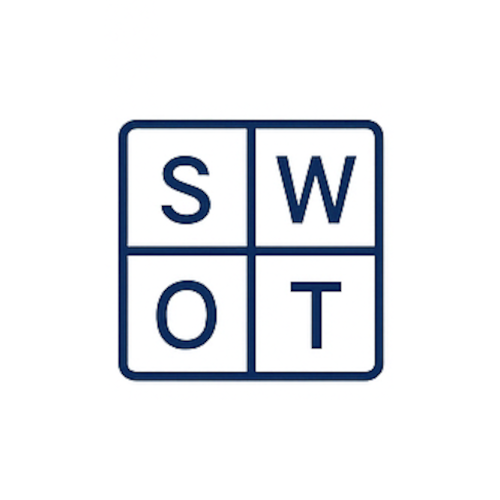Strategic initiatives play a pivotal role in aligning an organization’s efforts with its long-term goals. These initiatives are not just routine tasks; they are focused projects or efforts designed to achieve specific, high-impact objectives that drive a company’s strategy forward. Understanding what strategic initiatives are and how they function within a business context is crucial for any organization aiming to achieve its goals efficiently and effectively.
Defining Strategic Initiatives
A strategic initiative is a concentrated effort or project that aligns with an organization’s overall strategy. These initiatives are typically designed to achieve specific goals and are implemented by a dedicated team or department. Unlike day-to-day operations, which focus on maintaining the current state of the business, strategic initiatives target long-term, high-impact objectives that are crucial for the company’s growth, innovation, and efficiency.
Key Characteristics of Strategic Initiatives:
- Alignment with Strategy: Strategic initiatives are directly linked to the organization’s broader strategic goals. They are the means through which these goals are executed.
- Dedicated Resources: Successful strategic initiatives require significant investment in time, resources, and often involve change management. This includes the commitment of manpower, technology, and budget.
- Cross-Departmental Collaboration: These initiatives typically involve multiple departments or business units working together towards common objectives, making collaboration and coordination essential.
Examples of Strategic Initiatives
Strategic initiatives can take many forms, depending on the organization’s goals and industry. Here are a few examples:
- Launching a New Product Line: Introducing a new product requires careful planning, market research, and collaboration between product development, marketing, and sales teams.
- Entering a New Market: Expanding into a new geographic or demographic market involves understanding the new market’s needs, adapting marketing strategies, and often, localizing products or services.
- Improving Customer Experience: Enhancing customer satisfaction might involve overhauling customer service processes, implementing new customer relationship management (CRM) systems, or training staff in customer service best practices.
- Implementing New Technology: Adopting a new technology platform, such as migrating to cloud services, requires technical expertise, project management, and change management to ensure a smooth transition.
Planning and Executing Strategic Initiatives
When proposing and executing a strategic initiative, it’s essential to approach it with the same rigor as you would a business case. This involves clearly defining the initiative’s purpose, scope, and the specific objectives it aims to achieve.
Key Components of a Strategic Initiative Plan:
- Goals and Objectives: Clearly articulate the specific goals the initiative intends to achieve. These should align with the company’s broader strategic objectives.
- Departmental Involvement: Identify the departments involved in executing the initiative. Each department should have clear milestones and responsibilities.
- Timeline: Set a projected end date based on when each department can complete their milestones. Timely execution is critical for the initiative’s success.
- Resource Allocation: Determine the resources required for the initiative, including budget, personnel, skills, and technology. Ensure these resources are secured and allocated efficiently.
- Risk Management: Identify potential risks that could compromise the initiative and develop contingency plans to mitigate these risks.
- Urgency and Deadlines: Establish the urgency of the initiative and set realistic but firm deadlines for achieving milestones.
For an initiative to succeed, it must be thoroughly reviewed and approved by the management team. This process should include assessing potential conflicts with other initiatives and securing commitment from all involved departments. Collaboration is often the key, especially when initiatives require cross-departmental cooperation.
Advantages of Strategic Initiatives
Strategic initiatives offer several benefits that contribute to the overall success of an organization:
- Focused Effort: By concentrating on strategic initiatives, an organization remains focused on its most critical objectives, reducing distractions and ensuring resources are used effectively.
- Enhanced Accountability: Clear objectives, timelines, and assigned responsibilities promote accountability across all levels of the organization.
- Strategic Alignment: Strategic initiatives are closely tied to the organization’s mission, vision, and goals, ensuring that all efforts are aligned with the overarching strategy.
- Improved Collaboration: Initiatives often require multiple departments to work together, fostering a culture of collaboration and shared purpose.
- Optimized Resource Allocation: Planning for strategic initiatives involves careful allocation of resources, ensuring that manpower, technology, and budgets are used where they are most needed.
Conclusion
In summary, strategic initiatives are essential for translating an organization’s strategy into actionable results. They require careful planning, strong leadership, and effective execution. By aligning these initiatives with the organization’s overall mission, vision, and goals, businesses can ensure they are focusing their efforts on the most impactful areas. Successful strategic initiatives guide growth and innovation, ensuring the organization moves steadily toward its goals.
Leveraging platforms like Sengi Solutions can enhance your organization’s ability to plan, execute, and manage strategic initiatives effectively. With tools designed to align your strategic initiatives with your overall business strategy, Sengi Solutions helps ensure that your efforts are coordinated, resources are optimized, and your goals are achieved.












